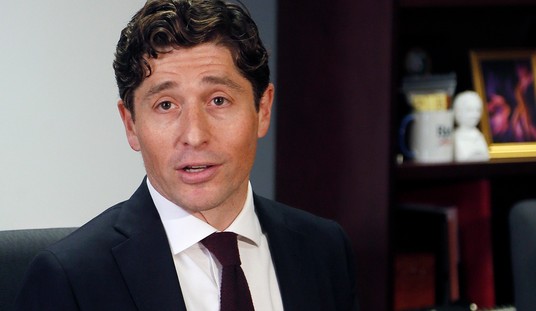And it’s the money that’s the problem. Nina Easton marvels at the rapid loss of standing for organized labor after the election of perhaps the most union-friendly President in decades. Not only has Barack Obama failed to deliver on any of Big Labor’s agenda, his diffidence has done nothing to stem the tide of state-level efforts to end disastrous union contracts and restore fiscal sanity to the public sector:
Two years later card check is dead, Obama is out promoting free-trade deals, and his health care reform plan — passed without a government option — faces an uncertain future in the courts. And now a costly new front has opened in labor’s struggles: the states, where budget-cutting governors are targeting union salaries, benefits, and even collective-bargaining rights.
Not even the most union-friendly President in three decades can soften this harsh political terrain — a problem sure to vex his 2012 reelection bid.
Unions spent $80 million on behalf of Obama and other Democrats in 2008. Combined with a sharp increase in direct contributions to campaigns, this independent money gave union-backed candidates a big edge, according to the Center for Responsive Politics.
For all of the screaming over the Citizens United decision and the hysteria over independent expenditures in political campaigns, it’s useful to recall this chart from the midterm cycle:

The three largest PEUs in the US outspent conservative action groups in the last cycle, $171 million to $140 million. Needless to say, it didn’t help much, and the next time around, it may help even less. The unions have had to fund defensive efforts in places like Wisconsin that will seriously drain their resources ahead of the 2012 cycle:
Now, even as union membership continues to decline — reducing the member dues available to siphon into political campaigns — labor is being forced to spend millions to defend its ground at the state and local levels. That means less money available for the President and his allies in 2012.
Given that unions have become primarily involved in the public sector, the push among governors to limit union power represents a big threat to their political muscle. The bill that the Wisconsin state Senate passed last night will put an end to state collection of dues and make the payment of such voluntary, a change that will almost certainly end any significant revenue. That money would normally find its way back into the coffers of Democrats running for office at all levels, and its disappearance will put Democrats at a disadvantage next year.
Nevertheless, AFL-CIO president Richard Trumka says his colleagues should thank Scott Walker for giving them a rallying point:
The Wisconsin governor’s plan to restrict collective-bargaining rights for government employees, which unexpectedly passed Wednesday night in the state Senate, has energized the labor movement in a way not seen in a generation, Trumka said.
“We probably should have invited him today to receive the Mobilizer of the Year award,” Trumka said.
Speaking at a conference hosted by the progressive group Campaign for America’s Future hours after Walker’s Republican allies in the Wisconsin state Senate ended a weeks-long standoff with a sneak parliamentary maneuver to pass the proposed labor restrictions, the labor chief was more defiant than crestfallen.
“In your lifetime, have you ever seen this much solidarity?” Trumka said to the crowd. “Have you ever seen this much excitement?”
This sounds a lot like whistling in the wind. The displays in Wisconsin will hardly inspire private-sector workplaces to organize, which is what Trumka really needs now. The Hitler signs and the mob-rule scenes playing out in Madison will alienate most of those who aren’t already working in the public sector, especially if they succeed in shutting down the state legislature there. Easton is much more accurate in her analysis, and Trumka is desperately trying to save face as taxpayers tire of union control over public policy.








Join the conversation as a VIP Member